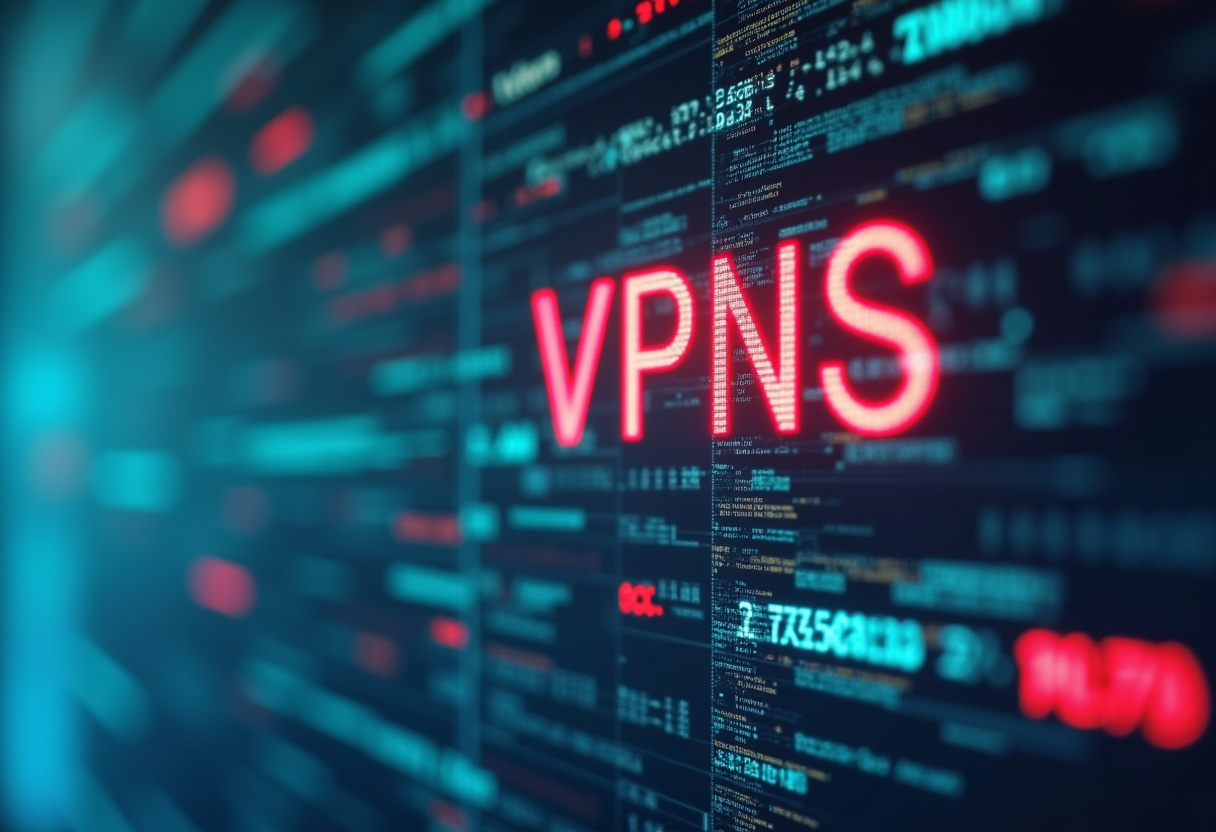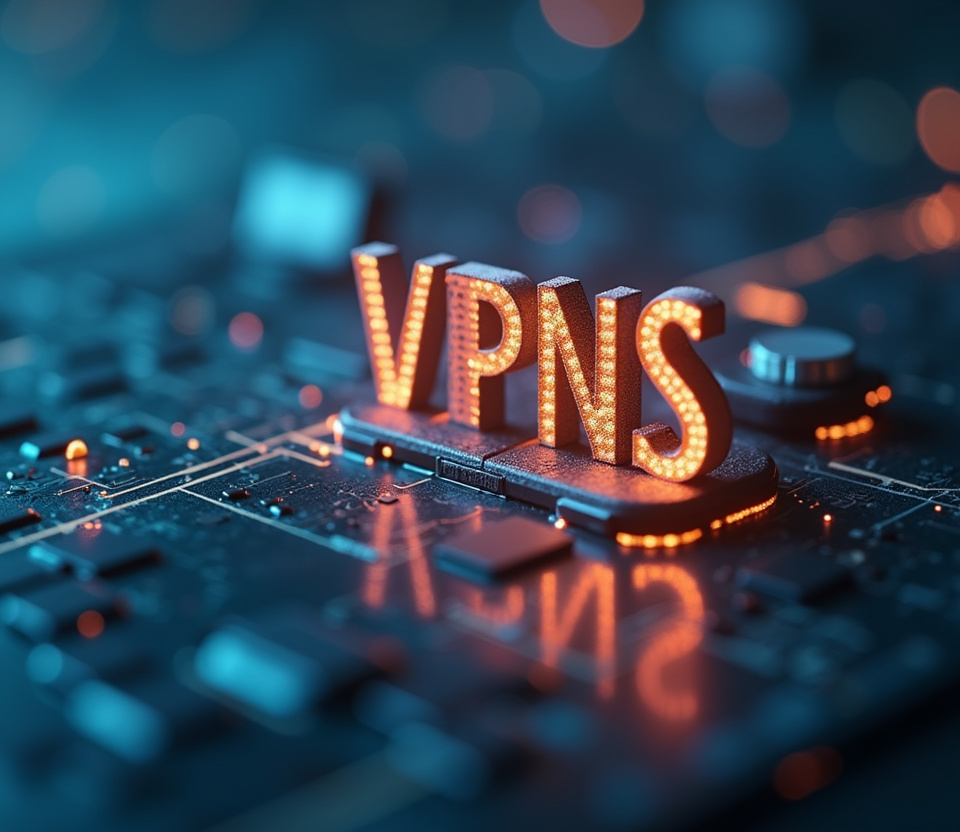VPNs for News Outlets: Securing Source Communications

Table of Contents
news outlet VPN
In the contemporary media landscape, the integrity of news reporting and the safety of journalistic practices are intrinsically linked to the security of communication channels. News outlets, operating in an environment characterized by increasing digital surveillance, sophisticated cyber threats, and geopolitical pressures, are facing unprecedented challenges in protecting their sources and maintaining the confidentiality of sensitive information. This has led to a growing recognition of the critical role that Virtual Private Networks (VPNs) play in safeguarding both source communications and the work of journalists.
This article delves into the multifaceted benefits of VPNs for news organizations, examining how they contribute to enhanced journalist security, secure source communication, and overall reporting integrity, underlining their importance as a . The proliferation of data breaches and targeted attacks on media organizations worldwide has emphasized the urgent need for robust security measures. Leaks of confidential information can not only compromise sources but also damage the reputation of news outlets and undermine public trust.
These compromises can critically impact . Furthermore, journalists working in hostile environments or covering sensitive topics are at heightened risk of surveillance, harassment, or even physical harm and their requires strict measures. A VPN acts as a crucial tool in mitigating these risks, providing a secure and encrypted tunnel for data transmission, effectively masking the user's IP address and location.
This makes it significantly harder for malicious actors to intercept communications, track online activity, or identify the physical whereabouts of journalists and their sources. By encrypting all internet traffic, VPNs ensure that sensitive data, such as emails, documents, and chat logs, remains confidential, preventing unauthorized access and potential misuse. This is essential for protecting and fostering trust between journalists and their sources.
Beyond mere encryption, a strategically implemented VPN solution also offers several additional benefits, including enhanced anonymity, protection against malware and phishing attacks, and the ability to bypass censorship and access blocked content. Anonymity is paramount for journalists seeking to protect their sources, as it allows them to conduct research, communicate confidentially, and gather information without revealing their identity or location. Robust VPNs often incorporate advanced features like multi-hop connections, which route traffic through multiple servers across different geographic locations, further obfuscating the user's origin.
This added layer of anonymity makes it significantly more difficult for adversaries to trace communications back to the journalist or their source. Moreover, many VPN providers offer built-in malware and phishing protection, which can safeguard journalists from malicious software and phishing attempts that could compromise their devices and data. In countries with strict internet censorship, a can be used to circumvent government restrictions and access blocked news sites, social media platforms, and communication tools, enabling journalists to report on events and issues without fear of reprisal.
This ability to bypass censorship is crucial for ensuring that journalists can access and disseminate information freely, regardless of geographical or political constraints. The increasing reliance on digital communication has made news organizations more vulnerable to a wide range of cyber threats, including man-in-the-middle attacks, eavesdropping, and data theft. A well-configured VPN can effectively mitigate these risks, providing a secure and reliable channel for communication between journalists and their sources.
Protecting also extends to safeguarding metadata associated with digital files and communications. Metadata can reveal sensitive information about the author, creation date, and location of a document, which could be used to identify a source. VPNs, combined with other privacy-enhancing tools, can help journalists minimize the risk of metadata exposure.
Choosing the right VPN for a news outlet requires careful consideration of several critical factors, including security protocols, encryption standards, server infrastructure, logging policies, and jurisdiction. The strongest VPNs utilize advanced security protocols like OpenVPN or WireGuard, coupled with robust encryption algorithms such as AES-256, to ensure the highest levels of data protection. A large and geographically diverse server network is also essential, as it allows journalists to connect to servers closer to their sources and access content from different regions.
Equally important is a strict no-logs policy, which means that the VPN provider does not collect or store any user data, including browsing history, IP addresses, or connection timestamps. Finally, the jurisdiction of the VPN provider is a critical consideration, as it determines which laws govern the company and how user data is handled. News outlets should choose providers based in countries with strong privacy laws and a commitment to protecting freedom of expression.
Selecting the right provider is paramount for maintaining the security and integrity of journalistic endeavors.
VPN for media
The selection and implementation of a suitable VPN solution for a news outlet is not a one-size-fits-all endeavor. A careful assessment of the organization's specific needs, threat landscape, and internal infrastructure is crucial in determining the optimal approach to integration. One of the key considerations is the level of security required.
Journalists dealing with highly sensitive information or operating in high-risk environments will require a VPN with the most robust security features, including strong encryption, multi-hop connections, and leak protection. This is paramount for ensuring and the protection of sensitive . For journalists primarily engaged in less sensitive reporting, a less expensive and less complex VPN may suffice, but even then, baseline security standards should be maintained to prevent potential compromises.
Another important factor to consider is ease of use. A VPN that is difficult to set up and use may not be readily adopted by journalists, undermining its effectiveness. News outlets should choose a VPN with a user-friendly interface and clear instructions for installation and configuration.
Training journalists on how to use the VPN properly is also essential, ensuring they understand how to connect to servers, verify their connection status, and troubleshoot common issues. This training should also cover best practices for online security, such as avoiding suspicious links and using strong passwords. The scope of VPN deployment also needs careful planning.
Should the VPN be deployed across the entire organization, or only to specific departments or individuals? Is the VPN to be used only on desktop computers, or also on mobile devices? These questions need to be answered in the context of the organization's security goals and resource limitations.
Many organizations are adopting a hybrid approach, providing VPN access to all staff members but requiring its use only when accessing sensitive information or connecting to public Wi-Fi networks. This can help to balance security with usability and cost-effectiveness. The type of VPN protocol employed is another critical decision point in maintaining .
OpenVPN and WireGuard are generally regarded as the most secure VPN protocols currently available, offering excellent encryption and performance. However, they may be more complex to set up than older protocols like PPTP or L2TP/IPsec. WireGuard, in particular, is gaining traction due to its speed and modern codebase, making it an attractive option for news organizations that prioritize performance.
The integration of the VPN with existing security infrastructure is also important. The VPN should be compatible with the organization's firewalls, intrusion detection systems, and other security tools. It should also be able to integrate with existing authentication systems, such as Active Directory, to streamline user management.
This integration can help to ensure that the VPN is seamlessly integrated into the organization's security ecosystem, rather than being treated as an isolated tool. Crucially, news outlets should establish clear policies and guidelines regarding the use of VPNs. These policies should outline when VPN usage is required, which servers should be used for different purposes, and what types of data can be transmitted over the VPN.
The policies should also address issues such as split tunneling, which allows users to route some traffic through the VPN while routing other traffic directly to the internet. Split tunneling can be useful for accessing local resources or streaming media, but it can also create security vulnerabilities if not configured properly. Security policies must also specify acceptable usage scenarios to protect and the outlet's reputation.
Under no circumstances should the VPN be used for illegal activity. Further, personnel should be trained to recognize and avoid attacks that might compromise the VPN connection. Phishing and social engineering attacks are common attack vectors.
reporting integrity
Beyond the fundamental security features, certain VPN functionalities can significantly enhance the operational efficiency and security posture of news outlets. One crucial aspect is the availability of dedicated IP addresses. While shared IP addresses offer a degree of anonymity, they can also lead to issues with website access and CAPTCHAs, as the IP address may be flagged due to the activity of other users.
A dedicated IP address, assigned solely to the news outlet, can mitigate these problems and improve the reliability of online communications. This is especially important when accessing sensitive databases or conducting online research. This will improve the .
Another valuable feature is the ability to configure custom DNS servers. By default, VPNs typically use the provider's DNS servers, which may be subject to censorship or surveillance. Configuring custom DNS servers, such as those offered by privacy-focused organizations, can further enhance anonymity and prevent DNS leaks, ensuring that all internet traffic is routed through a secure and trusted channel.
This adds another layer of protection to . The ability to use a "kill switch" is also a critical safety net. A kill switch automatically disconnects the internet connection if the VPN connection drops, preventing unencrypted data from being transmitted.
This is particularly important for journalists working in high-risk environments, where even brief exposure of their IP address or online activity could have serious consequences and compromise their . Many VPN providers offer mobile apps that extend VPN protection to smartphones and tablets. This is increasingly important, as journalists are increasingly relying on mobile devices for communication, research, and reporting.
The mobile apps should offer the same level of security as the desktop clients, including strong encryption, leak protection, and a kill switch. Furthermore, news outlets should consider implementing two-factor authentication (2FA) for all VPN accounts. 2FA adds an extra layer of security, requiring users to provide a second factor of authentication, such as a code from a mobile app, in addition to their password.
This makes it significantly harder for attackers to gain unauthorized access to VPN accounts, even if they have stolen the password. Regular security audits of the VPN configuration and infrastructure are also essential. These audits should be conducted by independent security experts and should cover all aspects of the VPN implementation, including server security, encryption protocols, logging policies, and access controls.
The audits should identify any vulnerabilities or weaknesses in the VPN configuration and provide recommendations for remediation. The increasing sophistication of cyber threats requires a proactive and vigilant approach to VPN security. News outlets should stay informed about the latest threats and vulnerabilities and regularly update their VPN software and security policies.
They should also educate their journalists about the importance of VPN security and provide them with the necessary training and resources to use the VPN effectively. This constant vigilance is essential for . Finally, news outlets should carefully consider the legal and regulatory implications of using VPNs.
In some countries, the use of VPNs is restricted or even illegal. News outlets should ensure that their VPN usage is compliant with all applicable laws and regulations and they should also consult with legal counsel to ensure that they understand the potential risks and liabilities associated with using VPNs. By taking these steps, news outlets can ensure that their VPNs are robust, secure, and compliant with all applicable laws and regulations, protecting their journalists and their sources from online threats and ensuring the integrity of their reporting as a solution.
This contributes to a safer and more reliable . Regularly reviewing the VPN setup is vital for optimal .
source communications
The human element remains a critical factor in the overall effectiveness of a VPN deployment within a news organization. No matter how robust the technical infrastructure, a lack of awareness or adherence to security protocols by journalists can create significant vulnerabilities. Therefore, comprehensive training programs are essential to ensure that all users understand the importance of VPNs and how to use them correctly.
These programs should not only cover the technical aspects of VPN usage but also address the broader context of online security and privacy best practices. Journalists need to be educated about common threats such as phishing, malware, and social engineering, and how to recognize and avoid them. They should also be taught how to create strong passwords, protect their devices from unauthorized access, and securely handle sensitive information.
Regular refresher courses and updates are also necessary to keep journalists informed about the latest threats and security measures. It's also helpful to establish clear lines of communication between the IT department and the journalists, so that any security concerns can be reported and addressed promptly. This fosters a culture of security awareness and encourages journalists to take ownership of their own online safety to protect .
Furthermore, news outlets should develop clear protocols for handling sensitive information, both online and offline. These protocols should address issues such as data encryption, secure storage, and secure disposal of documents. They should also outline procedures for reporting security breaches and incidents to protect .
By establishing and enforcing these protocols, news outlets can minimize the risk of data leaks and breaches, even in the event of a technical failure or a human error. The protocols also need to address the specific challenges of remote work. With more and more journalists working from home or in the field, it's essential to ensure that they have the necessary tools and resources to maintain a secure connection to the news outlet's network from anywhere in the world.
This may involve providing them with secure laptops, mobile devices, and hotspots, as well as training them on how to use these devices safely and securely. When working remotely and especially when are involved, publicly accessible and shared internet connections must be avoided. The VPN settings themselves need to be regularly reviewed not just on the server-side, but on the client-side as well.
For example, depending on the operating system in use, it might be possible to set trusted network connections. Steps need to be taken to ensure that the VPN connection for a given device is always on, even when connected to a trusted network. Another important consideration is the monitoring and auditing of VPN usage.
News outlets should implement systems to monitor VPN connections and identify any suspicious activity, such as unusual login attempts or excessive data transfer. They should also conduct regular audits of VPN logs to ensure that the VPN is being used in accordance with the organization's security policies. This monitoring and auditing can help to detect and prevent security breaches and ensure that all users are adhering to the organization's security protocols.
Such processes also help improve the overall . In cases where concerns surrounding become a concern, the news outlet might consider additional steps like issuing anonymous computing devices to their at-risk journalists. These devices would be entirely separate from their normal day-to-day computer and would be wiped entirely of data after each use.
This measure is likely excessive for most journalists, but would be useful in extreme situations.
source communications
Looking ahead, the role of VPNs in news organizations is only set to become more critical as the threat landscape continues to evolve and as the reliance on digital communications increases, and as rely more on digital tools. Emerging technologies and trends, such as artificial intelligence (AI), cloud computing, and the Internet of Things (IoT), present both opportunities and challenges for news outlets. AI can be used to automate security tasks, such as threat detection and vulnerability management, but it can also be used by attackers to launch more sophisticated and targeted attacks.
Cloud computing offers scalability and cost savings, but it also introduces new security risks associated with data storage and access. The IoT, with its proliferation of connected devices, creates new attack vectors that can be exploited by malicious actors. To address these challenges, news outlets will need to adopt a layered security approach that combines VPNs with other security technologies, such as firewalls, intrusion detection systems, and endpoint protection software.
They will also need to invest in security training and awareness programs to ensure that their journalists are equipped to deal with the latest threats. Furthermore, news outlets will need to collaborate with other organizations, such as government agencies, research institutions, and other media outlets, to share information about threats and best practices. This collaborative approach is essential for staying ahead of the curve and protecting in an increasingly complex and interconnected world.
The legal and regulatory landscape surrounding VPNs is also likely to evolve in the coming years. As governments around the world grapple with issues such as internet censorship, data privacy, and national security, there may be new laws and regulations that affect the use of VPNs. News outlets will need to stay informed about these developments and adapt their VPN policies and practices accordingly.
This will help to ensure that they are compliant with all applicable laws and regulations and that they are protecting the rights and freedoms of their journalists. Furthermore, news outlets should advocate for policies that support a free and open internet and that protect the rights of journalists to report on issues of public interest, all while guaranteeing . This advocacy is essential for safeguarding the future of journalism and ensuring that the public has access to reliable and trustworthy information.
Protecting starts not with technology, but the decision to maintain the fundamental principles of a free press. As technology continues to change and evolve, what it means for news gathering tomorrow will be very different from what it means today. By actively recognizing the importance of that change, news outlets can get ahead of these issues and plan accordingly for long-term success and the continued dissemination of information, while simultaneously taking the necessary steps to adequately protect their journalists in the field.
This will require a continuous process of evaluation, adaptation, and innovation, but it is essential for ensuring that news outlets can continue to fulfill their vital role in society. The future of isn't just about technology, it's creating an ethical framework for journalism. In conclusion, VPNs are an indispensable tool for news outlets seeking to secure their source communications, protect their journalists, and maintain the integrity of their reporting.
By carefully selecting and implementing a VPN solution, providing comprehensive training, and staying informed about the latest threats and best practices, news outlets can effectively mitigate the risks associated with digital communications and ensure that they can continue to fulfill their vital role in informing the public.
Stay Updated
Get the latest VPN news, tips, and exclusive deals to your inbox.




